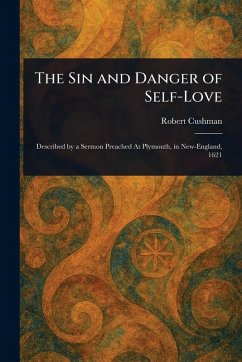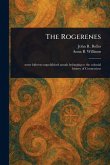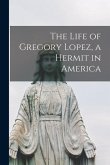"The Sin and Danger of Self-Love: Described by a Sermon Preached at Plymouth, in New-England, 1621" offers a vital glimpse into the heart of early American Puritanism. This meticulously prepared print edition presents Robert Cushman's influential sermon, a cornerstone of religious and historical thought in colonial New England. Delve into the theological landscape of the 17th century as Cushman explores the dangers of self-love, a prominent theme within Puritan soteriology. This sermon provides valuable insights into the moral and spiritual concerns of the Plymouth colonists, illuminating their beliefs and values. A significant document for understanding early American sermons and the religious foundations of the United States, this work remains relevant for anyone interested in religion, theology, and the colonial period. Explore themes of self-love within the context of Puritan society and gain a deeper understanding of this pivotal moment in American history. This work has been selected by scholars as being culturally important, and is part of the knowledge base of civilization as we know it. This work is in the public domain in the United States of America, and possibly other nations. Within the United States, you may freely copy and distribute this work, as no entity (individual or corporate) has a copyright on the body of the work. Scholars believe, and we concur, that this work is important enough to be preserved, reproduced, and made generally available to the public. We appreciate your support of the preservation process, and thank you for being an important part of keeping this knowledge alive and relevant.
Bitte wählen Sie Ihr Anliegen aus.
Rechnungen
Retourenschein anfordern
Bestellstatus
Storno




![Exposure of Puseyism and High-churchism by a Minister of the Church of England, or, Danger and Duty [microform] Exposure of Puseyism and High-churchism by a Minister of the Church of England, or, Danger and Duty [microform]](https://bilder.buecher.de/produkte/66/66193/66193350m.jpg)

![The French Exhibition of Horrors [microform]: a Sermon on the Sin of Torturing Animals, Preached in the Middle Parish Church, Greenock, Scotland, Sept The French Exhibition of Horrors [microform]: a Sermon on the Sin of Torturing Animals, Preached in the Middle Parish Church, Greenock, Scotland, Sept](https://bilder.buecher.de/produkte/65/65514/65514057m.jpg)

![Mammon, or, Covetousness the Sin of the Christian Church [microform] Mammon, or, Covetousness the Sin of the Christian Church [microform]](https://bilder.buecher.de/produkte/66/66185/66185553m.jpg)
